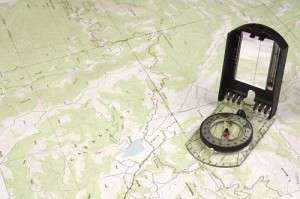Here are 10 skills for survival every prepper needs to know.
A lot of people want to join in on the prepper movement, but they aren't sure where to begin because there’s a lot to learn! Do you begin with canned food storage? Or do you invest in a water purification system? Or do you focus on creating an awesome bug-out bag?
Experienced preppers face a different problem: what’s next? The truth is, there’s always some other way you can prepare; sometimes, you just need an idea of what that is.
To help give you some direction or ideas on the preparedness skills you can learn next, we’ve made this list of 10 skills we think every prepper should know.
Interpersonal Skills
Survival scenarios are going to be much more successful (and pleasant) if you have great interpersonal skills. As Max Messmer (author of Managing Your Career For Dummies) said, “Your career success in the workplace of today – independent of technical expertise – depends on the quality of your people skills.”
Whether you call them social skills, people skills, or something else, your ability to work with others in a positive, productive way can literally save your life in an emergency. You’ll also become known as a leader who can be trusted and given responsibility. This will allow you to help others who may not be as prepared when disaster strikes.
Perseverance
Sometimes it’s easy to daydream about life after it all hits the fan, but the reality is it’s going to be hard. Things like running water, electricity, and other conveniences may not be available, and that puts a strain on people. But if you have the ability to persevere and stay positive, even in adversity, you’ll be able to keep going and help others do the same.
Frugality
Learning how to be frugal with your money now will actually teach you skills you can use later. Careful resource management – whether that resource is money or food – is an invaluable skill. Think of how much more emotional and spiritual well being you’ll have when you choose a simpler, frugal way of living instead of giving in to every whim!
Problem Solving and Creativity
There may be situations you simply can’t be 100% prepared for. This doesn’t mean you have to give up hope. By learning how to optimistically approach problems and creatively look for solutions, you’ll be more than able to adapt to any survival scenario. You’ll have the ability to think quickly and act FAST, even in situations where others would have given up or been unable to find solutions.
First Aid
From wrapping a broken arm to closing a wound, there are countless ways first aid skills could be employed in a survival scenario.
However, one aspect of first aid that’s often overlooked is the ability to use natural or herbal remedies in place of medicine. If a pharmacy isn’t available, knowing which plants you can use instead is invaluable.
Farming and Gardening
Some people like to think of gardening and farming as the same thing on a different scale, but farmers know better. Managing enough plants to consistently feed your family or community takes a very specific set of skills. Growing fruits and vegetables can also provide a form of currency in the event paper money isn’t worth much anymore. (Not hard to imagine since you can’t eat money!)
Even practicing your farming and gardening skills on a mini-acre can be a great way to get a feel for what it takes to work the land.
Home Repair
Basic home repair skills (such as plumbing, carpentry, and electrical work) are a must-know. You don’t have to be able to build an entire house yourself (even though that would help), but you should be able to fix anything that may break. Make a list of different things that could break in your home, then learn how to fix each of them.
Defense
Learning how to defend yourself and your family means learning a lot of different skills. It can mean knowing how to quickly load a gun and shoot accurately, but it can also mean learning how to hide effectively until danger passes. Always take time to learn how to use your weapon of choice skillfully: you never know when you’ll need it.
Self-Awareness
If you’re not honest with yourself, you won't’ be able to accurately assess dangers, identify problems, and know where you need to improve. Worse still, when you’re forced to face the truth, you may not be able to face it with enough optimism to get by.
Learning and practicing the art of self-awareness means learning how to identify and acknowledge your areas of improvement, but it also means learning how to accept these things with the knowledge you can improve. You can learn to see ways you need to grow, and you’re able to make plans on how that growth will happen. (Reading articles like this one is a great place to start!)
In a survival situation, being self-aware can mean the difference between life and death. Overestimating your abilities and under-preparing is something you don’t realize you’ve done until it’s too late.
Economics
Finally, understanding economics will allow you and your family to thrive in a survival scenario. Even learning basic economic theory gives you the ability to understand potential trade and barter situations in a way where no one can take advantage of you. Plus, you’ll be better at identifying economic disaster on a national scale before it hits.
This list of skills certainly isn’t the be-all-end-all of survival skills, but it should be enough to get you started on where you can improve your preparedness.
Are there any skills we left off you think we should have included? Let us know in the comments!








No comments yet.